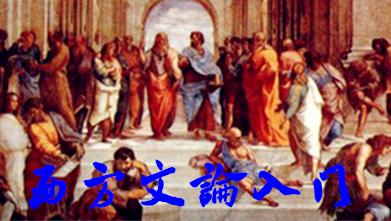A Guide to Literary Theory and Criticism will introduce you to a fascinating range of approaches to literary interpretation, from Plato’s thoughtful comments on literature's function, to the most recent trends in understanding literature as a part of our cultural and even environmental interactions. Along the way, you’ll find step-by-step, conversational explanations of each perspective. This course has been prepared with entry level audiences in mind. Book lovers and reading group members will find that this course offers accessible, thought-provoking insights for discussing any literary work you choose. Throughout the study of this course, we suggest some specific examples and questions for your consideration, but the real value is bringing your own interests into dialogue with any of the literary critics and approaches you’ll read about in the future. For students of literature, film, philosophy, and sociology (as well as their mentors), this introduction course is intended as an authoritative and lively summary of issues important to your studies in an easy way.
1.1 Making sense of things
1.2 Theory meets criticism
1.3 Writers and their clever ways
1.4 The words on the page
1.5 Critics and the world
Key Concepts I
2.1 Theme and Form
2.2 Plot
2.3 Motif
2.4 Motif and Symbol and Theme
2.5 Function of Motif
Key Concepts II
3.1 Narrators
3.2 Point of View
3.3 Focalization
3.4 Characterization
3.5 Flat vs Round
3.6 Direct vs Indirect
Key Concepts III
4.1 Details in Literature
4.2 Imagery
4.3 Figurative Language
4.4 Metaphor
4.5 Allegory
4.6 Symbols
Plato
5.1 Plato's Bio
5.2 Plato's Idealism
5.3 Mimesis
5.4 Dialogues in the Republic
5.5 Plato’s view of the social function of Art
Aristotle
6.1 Aristotle's Bio
6.2 Aristotlian Imitation
6.3 Aristotle vs Plato
6.4 Poetics
6.5 Imitation
Horace
7.1 Quintus Horatius Flaccus' Bio
7.2 Horace’s Adherence to Greek Classics
7.3 Mimesis
7.4 Audience Response
7.5 The Ultimate Aim of Poetry
7.6 Art of Poetry
Longinus
8.1 Who is Longinus?
8.2 The Concept of Antiquity
8.3 The Notion of “Ancient Literary Criticism”
8.4 Rhetorics in the Hellenistic Period
8.5 On the Sublime
Dante
9.1 Italy: the Center of the Renaissance
9.2 Dante's Life
9.3 The Divine Comedy
9.4 Letter to Can Grande della Scala
9.5 Dante’s Atistic View
9.6 Dante’s View on Knowledge
George Bernard Shaw
10.1 Shaw's Life
10.2 Shaw's Plays
10.3 Shaw's Literary Ideas
10.4 Mrs. Warren's Profession
Dilthey
11.1 Wilhelm Dilthey's Aim
11.2 Dilthey's View of History
11.3 Dilthey's Life-Philosophical Orientation
11.4 Experience
11.5 Expression
11.6 Understanding
Jauss
12.1 Who is Jauss?
12.2 Jauss' Major Works
12.3 Literary History as a Challenge
12.4 Horizon of Expectation
12.5 Aesthetic Distance
Feminism
13.1 Sayings about Females
13.2 Historical Position of Females
13.3 Feminism and Feminist Literary Theory
13.4 Virginia Woolf
13.5 A Room of One’s Own

